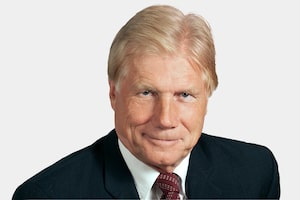If you did a poll of historians and asked who was our most ethical prime minister, Louis St. Laurent would finish high on the list.
Mr. St. Laurent, a distinguished Quebec lawyer who served as PM from 1948 to 1957, didn't enter politics until he was almost 60. He was the furthest thing from what you would call a political animal. He had not been brought up in that kind of world, as our more recent prime ministers have.
For Mr. St. Laurent, governance was about making decisions based on the country's needs, more than the party's needs. Gordon Robertson, a distinguished civil servant who served under every prime minister from Mackenzie King to Pierre Trudeau, admired Mr. St. Laurent the most: "In modesty and humanity, he had no peer." Jack Pickergsill, who served with multiple PMs as well, was struck by Mr. St. Laurent's calm managerial skills and his "complete freedom from meanness or malice of any kind."
Uncle Louis stayed in office too long and gave too much sway to cabinet men like C.D. Howe, who had little patience for the democratic process. In the pipeline debate of 1956, the Liberals' invoking of closure sparked a major controversy. As an indicator of how our democratic system has devolved, the use of closure and other means to cut off debate today has become almost routine. Back then, it badly damaged the reputation of the St. Laurent Liberals, and they narrowly lost the 1957 election.
We've had other prime ministers of high integrity, men like Lester Pearson, Robert Borden and Alexander Mackenzie. We've had leaders with varying backgrounds and varying perspectives on how the art should be practised. Pierre Trudeau came to power with an independent mind and was determined not to become immersed in political games, although he hardly succeeded.
After Mr. Trudeau, things changed. The political careerists took over. By happenstance, in the past three decades, with only a couple of small interruptions, the country has been run by the political animal breed of prime minister, men who ate, slept and drank politics.
For Brian Mulroney, Jean Chrétien and Stephen Harper, the foremost preoccupation was political strategizing. They were about as far from Mr. St. Laurent's model as could be imagined. This isn't to say it's been bad governance – that depends on one's perspective. But if we're searching for ways to explain the erosion of democratic ideals and standards, the long run of warriors in the prime minister's chair is a good place to look.
All three became mired in ethical controversy or scandal. The cumulative impact has been to lower the bar. Governance used to be all politics much of the time; now it's all politics all the time.
The career politician, almost by definition, has a mind more mired in scheming than high ideals. Mr. Chrétien entered politics at age 29, a full 30 years younger than Mr. St. Laurent. Politics is a sport, it's about winning, he used to bluntly say. And he was good at it.
Mr. Mulroney, who showed more respect for Parliament as prime minister than the current crew, spent some years in law and business but he was an obsessive politico. From a young age, most every waking hour was devoted to political calculus and examining press reports. Mr. Harper has known little else in his life but political combat. Politics is more than sport for him. It is blood sport, pure and simple.
Over the long stretch these men have been in power, the public has turned off politics like rarely before. It doesn't help that the pitched-battle mentality has infused the country's media psychology. If you compare today's coverage of government to that to earlier eras, you would find that far more space is given over now to horse-race stories and weighing political impacts than to other aspects of governance.
Change will require someone who comes to power having been outside the game, someone who has a different mentality, someone who is less a political animal and more a public servant.
 Lawrence Martin
Lawrence Martin